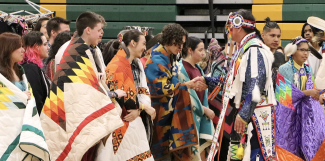
By Tucker Quetone
My experience as a Native American was shaped long before I was born. It began among the Cherokee and Kiowa tribes, into which my grandmother and grandfather were born, but it radically shifted when they were sent away from their families to government boarding schools. That is where they met. But it is also where they were stripped of their language and their customs, during a time when white America wanted to “civilize” Native people and force them to assimilate to Euro-American culture.
Those schools are the reason I grew up with none of the Native traditions my grandparents experienced when they were children. With the exception of occasional visits to my relatives and our annual city powwow, we didn’t celebrate our Native heritage. In my home, there were no drums for dancing; no basketry, bead working or pottery; no ceremonies; no healing traditions. They were wiped away not just for my grandparents, but for my father and for me.
Government boarding schools are the reason I grew up with none of the Native traditions my grandparents experienced when they were children.
After my grandparents graduated from the boarding school, they married, moved to the city and worked on assimilating into the larger culture. They didn’t allow their children to learn Native languages and discouraged them from looking or behaving in a way that would identify them as a Native American. I think my grandparents were trying to protect my father and his siblings from the stereotypes and prejudices they had experienced. And my dad followed their example, trying his best to fit in, to look more “American.”
Like my father, I was an urban Native, living in Tulsa, Okla. But by the time I was in high school, I wanted to learn more about my heritage. Eventually I went to the University of Oklahoma and joined a Native group there. And when I became a teacher, it became my passion to work with Native kids, helping them make the connections I never had when I was their age. Together, we are reconnecting with our communities.
From Brit lit to Native authors
In the beginning, I didn’t have much to work with. As an English teacher, I taught “Brit lit,” or British literature, and 19th- and 20th-century American classics. We talked about Shakespeare, Dickens, Thoreau and Hemingway. There just wasn’t much Native American literature available until the late 1970s, and even then it was hard to find.
When I moved to Rochester, Minn., in the early 1990s, I was the only Native teacher in our entire district. Almost all of my students had never had a Native teacher before.
When I moved to Rochester, Minn. in the early 1990s, I was the only Native teacher in our entire district.
But I pressed on, incorporating background information as I taught, weaving in the history of the tribes Native authors represented, tapping my own tribal history and offering bits of culture and music for context. We had to go through a long process to get Native authors’ books approved and onto our shelves, and then our teachers didn’t really know how to teach them, so I put together professional development sessions to prepare them.
That got me more involved on a broader scale, and I tried to move things on the district level. I started a class called Ethnic Voices and piloted it at my own school. I got more involved with my union, the Rochester Education Association, and with Education Minnesota. It took several years to get the class and the professional development approved and paid for, but it was worth it.
Expanding our reach
Now we teach Ethnic Studies at every high school in the district, and we are hoping to expand the class to middle schools; we also have plans for a follow-up course on Indigenous Studies. The district adopted a Louise Erdrich book as a district-wide text for all 10th-graders to read — Erdrich is an enrolled member of the Turtle Mountain Band of Chippewa Indians, a tribe of the Ojibwe people, and her novels have done much to elevate the understanding of contemporary Native life. The district has also hired two Native American liaisons to work with educators so they can teach culturally responsive and supportive content; I retired from the classroom last year and am happy to be filling one of those positions.
The union made a huge impact by supporting us with resources and communications networks, helping us inform our members about some of the opportunities to learn more about Native communities and to gather support for policy change.
At the state level, Minnesota has been good about adopting policies that require Native culture, history and literature to be interspersed throughout the curriculum. Working with Education Minnesota was a big part of that; we had a Native educators group and were part of the state ethnic minority affairs committee. The union made a huge impact by supporting us with resources and communications networks, helping us inform our members about some of the opportunities to learn more about Native communities and to gather support for policy change.
Seeing ourselves
Most importantly, these changes make a huge difference for our students. When they are able to see themselves and the historical struggles and victories of their families and ancestors reflected in the curriculum, they are so proud of that recognition.
We had the students do auto-ethnographies, interviewing family members, and they learned so much. I had one student who thought he might have Native heritage; he was inspired to ask his parents questions about the family. He started doing his own research, and it turns out he is Native, but the family just hadn’t talked about it. That’s true not just for Native students, but for others who have never talked to their grandparents about their history.
When students are able to see themselves and the historical struggles and victories of their families and ancestors reflected in the curriculum, they are so proud of that recognition.
I want more students to have that kind of experience, to be able to engage in what they’re learning at school in a personal and lasting way. And I want teachers to have the resources they need to incorporate Native topics into their curriculum. That’s why I’m continuing to work here in Minnesota, but also at the national level. As a founding member of the AFT’s Native American and Indigenous Issues Task Force, which we expect to launch soon, I hope to spread the word that these changes are possible. I’d like to help others who want to do this work but are not sure where to start.
Start here. Start with your classroom, your district. Start with your union.
About the Author
Tucker Quetone is a past president of the Rochester Education Association, a member of the upcoming AFT Native American and Indigenous Issues Task Force, and a member of Education Minnesota and the AFT.
